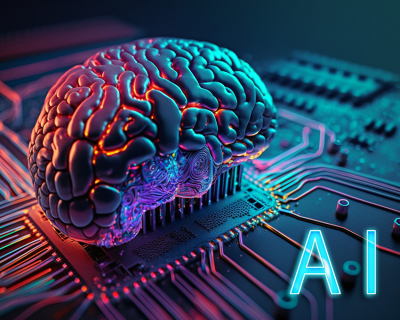
AI Healthcare
AI in Healthcare: Revolutionizing Medicine
Artificial Intelligence (AI) is transforming healthcare by improving diagnostics, treatment, drug discovery, and patient care. From early disease detection to personalized medicine, AI is making healthcare more efficient, accurate, and accessible. Here’s a comprehensive look at its applications:
1. AI in Medical Diagnostics
A. Medical Imaging & Radiology
Deep Learning for Image Analysis:
Detects tumors, fractures, and abnormalities in X-rays, MRIs, and CT scans.
Example: Google’s DeepMind detects diabetic retinopathy and breast cancer.
AI-Powered Early Detection:
Identifies early signs of lung cancer, strokes, and Alzheimer’s from scans.
B. Pathology & Lab Diagnostics
AI for Histopathology:
Analyzes tissue samples for cancer (e.g., IBM Watson for Oncology).
Automated Blood Tests:
AI algorithms detect anomalies in blood work faster than humans.
2. AI in Treatment & Personalized Medicine
A. Precision Oncology
Genomic AI Analysis:
Matches cancer mutations with targeted therapies (e.g., Tempus, Foundation Medicine).
Drug Response Prediction:
Predicts how patients will respond to chemotherapy or immunotherapy.
B. Robotic Surgery & Assistance
AI-Guided Surgical Robots:
Enhances precision in procedures (e.g., Da Vinci Surgical System).
Real-Time Decision Support:
AI advises surgeons during operations using live data.
C. Virtual Health Assistants & Chatbots
AI Symptom Checkers:
Example: Ada Health, Buoy AI help patients self-diagnose.
Mental Health Support:
Chatbots like Woebot provide CBT-based therapy.
3. AI in Drug Discovery & Development
Accelerating Drug Design:
AI predicts molecular interactions (e.g., DeepMind’s AlphaFold for protein folding).
Repurposing Existing Drugs:
Identifies new uses for old drugs (e.g., Baricitinib for COVID-19).
Clinical Trial Optimization:
AI selects ideal candidates and predicts trial success rates.
4. AI in Patient Monitoring & Wearables
Remote Patient Monitoring:
AI analyzes data from smartwatches (Apple Watch, Fitbit) to detect arrhythmias.
Predictive Analytics for ICU Patients:
AI models (e.g., Epic’s Deterioration Index) predict sepsis or cardiac arrest.
5. AI in Healthcare Administration
Automating Medical Records (NLP):
AI transcribes and organizes electronic health records (EHRs).
Fraud Detection:
Flags insurance fraud and billing errors.
6. Challenges & Ethical Concerns
✅ Pros: Faster diagnoses, cost reduction, personalized care.
Future of AI in Healthcare
AI Doctors (LLMs like GPT-4 in diagnosis)
Nanobots for Targeted Drug Delivery
Fully Autonomous Robotic Surgeries
AI is not replacing doctors but augmenting their capabilities, leading to a new era of smart, efficient, and patient-centric healthcare.




